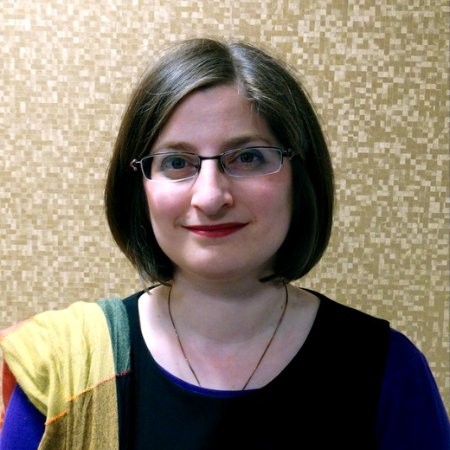Open standards: making our cities smarter
The future of smart cities depends on the free flow of data

The United Nations recently predicted that by 2030, 60 percent of the world’s population will live in cities. In fact, there are already approximately 400 cities with populations exceeding 1 million. Worryingly, as this figure continues to grow, urban environments experience mounting pressures day on day.
We constantly hear that industrial pollution is jeopardising the health of those that live in cities and, almost every week, the catastrophic consequences of fire, flooding and drought stemming from climate change hit the headlines. Moreover, ongoing overseas conflict has forced civilians to flee warzones, generating waves of migration which in turn accelerates the growth of already exploding urban populations.
More than ever, city leaders require solutions to help them make better decisions, reduce risks, and manage resources more efficiently. The era of smart cities promises answers to some key challenges – however, putting the technology into practice requires bigger, more intelligent thinking.

Traditional cities
It goes without saying that successful cities do their upmost to provide citizens with a clean, safe and hospitable living environment. Alongside this, these services need to be provided in as cost efficient a manner as possible to reduce the tax burden on the cities’ inhabitants. Yet with inadequate, often fragmented data to draw from, this becomes an uphill struggle.
Traditional cities are typically held back by poor data, making it tough to see the wider picture and spot emerging trends. This, coupled with ongoing challenges faced by the public sector such as change management and siloed approaches to IT, make large-scale strategic planning near impossible. As such, those in leadership positions are forced to take a reactive approach, responding to predicaments as and when they arise.

Utilising data: smart cities
By contrast, in smart cities electronic sensors are tactically deployed to collect specific data. When connected, these sensors form an Internet of Things (IoT) network and deliver a steady stream of quality data to governments. When analysed, this data can be leveraged to glean fresh and useful insights into the state of the city such as air quality or congestion levels. Equipped with this information, key decision-makers can make informed, forward-looking choices.
Making the transition from ‘traditional city’ to ‘smart city’, however, is difficult. This is why the European Union Research and Innovation Programme has put a large amount of funding into the bIoTope smart city project - part of the Horizon 2020 Programme.
Are you a pro? Subscribe to our newsletter
Sign up to the TechRadar Pro newsletter to get all the top news, opinion, features and guidance your business needs to succeed!
By collaborating with The Open Group, industry players and academic institutions, bIoTope is running a series of cross-domain smart city pilot projects. These smart pilots have been rolled out in Brussels, Lyon, Helsinski, Melbourne and Saint Petersburg and will provide proofs-of-concept for applications such as smart lighting, smart metering, weather monitoring and the management of shared electric vehicles.
The end goal of the bIoTope project is to showcase the benefits of utilising the IoT, such as greater interoperability between smart city systems. In addition, it will provide a framework for privacy and security to guarantee responsible use of data on the IoT.

Open standards: facilitating interoperability
Using open, non-propriety standards will be crucial to the development of smart cities going forward. For example, consider the future state of a smart city and then think about an autonomous vehicle driving a smart citizen to an office. Upon delivering the passenger, the vehicle will then need to connect to the city’s IoT to communicate with local facilities and find a parking space and charging point.
These interactions rely on the ability for systems to communicate seamlessly with each other. For this reason, smart cities require an agreed standard for data formatting and messaging structures between system manufacturers. Without standards, interoperability and smooth transactions are impossible.
There are already a number of technology standards that enable the free flow of information and support the convergence of emerging technologies within a single digital platform. For example, two standards – developed by The Open Platform 3.0™ Forum of The Open Group – have been specifically designed for the IoT. The Open Messaging Interface (O-MI) and the Open Data Format (O-DF), provide service interoperability, delivering the structure and common language for vendor-neutral conformance.
The future success of smart cities ultimately depends on of the free flow of data and, in turn, on multiple vendors adopting open standards. As the bIoTope project is demonstrating, smart cities are a not-so-distant reality. However, ensuring a smooth transition will take a great deal of cooperation from numerous stakeholders – not only from urban planners and Enterprise Architects, but also from academics, industry players and standards bodies.
Dr Michelle Supper, Forum Director of The Open Platform 3.0™ Forum at The Open Group
Dr Michelle Supper is the Forum Director of the Open Platform 3.0 Forum at the Open Group. She is a certified system, business and enterprise architect with a perceptive, pragmatic approach, She possesses the skills and experience to resolve complex problems, determine future states, and recover stalled projects. She has guided the development of several major defence systems, won massive contracts for clients, and helped businesses and government departments to improve and transform their operations.
